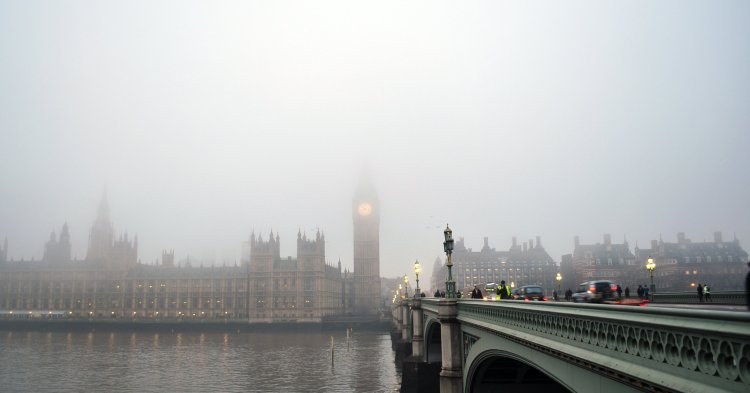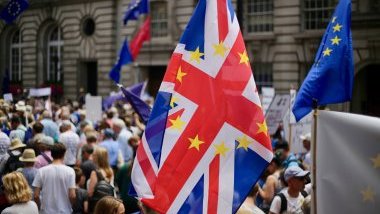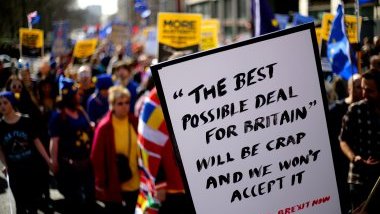What’s more important for the Conservatives: Traditions or trade?
The cornerstone of British conservatism is a belief that societal institutions develop ‘organically’, gradually, as if by themselves. A rapidly developing European Union that was conceived by state leaders doesn’t sit well with this kind of a moderate mindset. When decision-making power is exercised together with other countries, and no longer solely in the Palace of Westminster that was first built in 1016, a conservative will instinctively reach for the brakes.
Especially since the times of Margaret Thatcher, the British Conservative Party has simultaneously pushed for free trade and deregulation. Accordingly, Thatcher belonged to the most enthusiastic supporters of the European Single Market, and the UK in general has been one of the chief architects of the Single Market.
The problem the Conservatives have is that in today’s Europe, preserving centennial traditions on one hand, and seamless trade with neighbours on the other, are mutually exclusive alternatives.
Throughout the Brexit negotiations, the British government has attempted to hold on to both (“have your cake and eat it too”), but it hasn’t been able to ram its head through the stone wall. For example, Theresa May initially demanded that the UK no longer be subject to the jurisdiction of the European Court of Justice. However, if the UK wants to escape European decisions that threaten national judicial traditions, trade relations will be threatened. The British government proposed various complicated solutions to avoid the problem, but the EU hardly gave way. According to Theresa May’s Brexit deal, the EU court has the final word when a dispute concerns the interpretation of EU law.
The two faces of the Labour Party
The British (or rather, mainly English and Welsh – in Scotland, the SNP mixes things up, while in Northern Ireland the political fault line is the question of Irish unification) two-party system has driven the different shades of the centre right and the right to work together within the same party. The Conservative Party last split in the mid-19th century over the so-called Corn Laws – then, too, because of a dispute on free trade. If the UK leaves the EU without a deal, the party may split again. The Labour Party, for its part, last split in 1981, and a new split is ongoing as I speak.
Four well-known MPs, including the former European Commission President Roy Jenkins, quit Labour in 1981. One of the major reasons for their departure was that the party leader Michael Foot, representing the left flank of Labour, demanded a British exit from the EU’s predecessor, EEC.
This winter, history is repeating itself: so far, eight Labour MPs have left the party for the new alliance called The Independent Group. The MPs who left Labour are much closer to the political centre than is the left-wing party leader Jeremy Corbyn, under whose leadership Labour has been accused of anti-EU stances and antisemitism.
After being pressured for months, Corbyn now reluctantly supports a new EU referendum, but Labour’s split in two camps remains visible. In many other countries, the left and the social democrats are separated in two parties, and the leftist parties take a somewhat more reserved stance on the EU.
In the British two-party system, these two wings battle for Labour leadership, and the leader’s attitudes towards the EU are a clear signal of their political orientation. The centrist Tony Blair is a supporter of the EU, whilst Jeremy Corbyn has throughout his career voted against European integration in the British Parliament. Especially now that the EU has become the number one issue in British politics, those following EU affairs may expect the next Labour leadership election to be a fascinating showdown between the party’s different factions.
The middle way?
The new Independent Group is rumoured to become the UK’s next new political party. Last time the SDP of Roy Jenkins and others withered away in a few years, as it failed to win many seats in the UK Parliament in the 1983 and 1987 elections despite polling at around 10%. The British electoral system guarantees that going solo rarely pays.
However, perhaps as we are entering the 2020s, politics has already changed from the 1980s. Economic concerns never disappear from the world, but today questions of values – such as the conflict between openness and closedness – move voters in a different way compared to what they did a few decades ago. As both the Conservatives and Labour are ill at ease with their positions on the EU, there may be a space open for a new party.
However, at the same time both traditional main parties always have the power to close the gates of the Palace of Westminster in front of newcomers’ noses. If Labour or the Conservatives elect a modern, pro-European politician to become their leader at a party conference, the gaping hole in the political centre closes over one weekend.
On the other hand, this gap may always open again – especially if public support for EU membership remains at around 50 percent, in which case both a pro-EU and an anti-EU politician have equal chances to win an election. The purpose of a two-party system is to guarantee political stability but at a time when the nation and both main parties are deeply divided over the EU question, British EU policy may swing wildly over the next couple of decades.





Follow the comments: |
|
